
This Homepage is under construction
Multimedia Learning Environment for Work-Based Learning Tasks for VET-Students in Sector of Applied Informatics

About MULE
In the MULE project, current trends in applied informatics are to be efficiently integrated into curricula through cooperation between vocational schools and industry. This will be achieved by defining „spheres of activity“ which will serve as the basis for learning and work tasks in a multimedia learning environment. The focus is on the promotion of transversal and vocational competences of students. The planned transnational Sectoral Qualification Framework aims to improve the comparability of the competences of professionals from Germany, Serbia, Italy and Spain in the field of Applied Informatics.
A sector study, curricula analysis as well as expert-workshops take place in order to identify professional spheres of activity in all countries. Based on the definition of mutual spheres of activity, for selected ones work-processes, competences (based on a competence model) and typical tasks will be analysed. They form the cornerstone for designing learning and work tasks (LWT) in the multimedia learning environment and evaluate them in the pilot at VET-schools in a DBR-approach. Results will be 13 LWT tasks in a barrier-free multimedia learning environment based on rapid e-learning and an evaluated didactical concept.
Tasks are available for all interested actors in VET as the learning environment is free of charge. The project strengthens the collaboration of all actors and combines theory and practice in Europe. The sector qualification framework is a valuable step towards better transparency, recognition and as a blueprint for qualifications, sectors and companies.
Blog
Pilot phase of the multimedia learning environment in Germany – a great end to the year
On December 18, 2025, Vivian Harberts and Christine Siemer from the Institute for Technology and Education (ITB) conducted the piloting of the Multimedia Learning Environment for Work-Based Learning Tasks for VET Students in the Sector of Applied Informatics at a vocational school. This pilot phase marks a key step in the practical implementation of an innovative teaching and learning concept for vocational education and training in the field of applied informatics. After the pilot phase, the insights gained will be used to further optimize the learning content and learning environment.
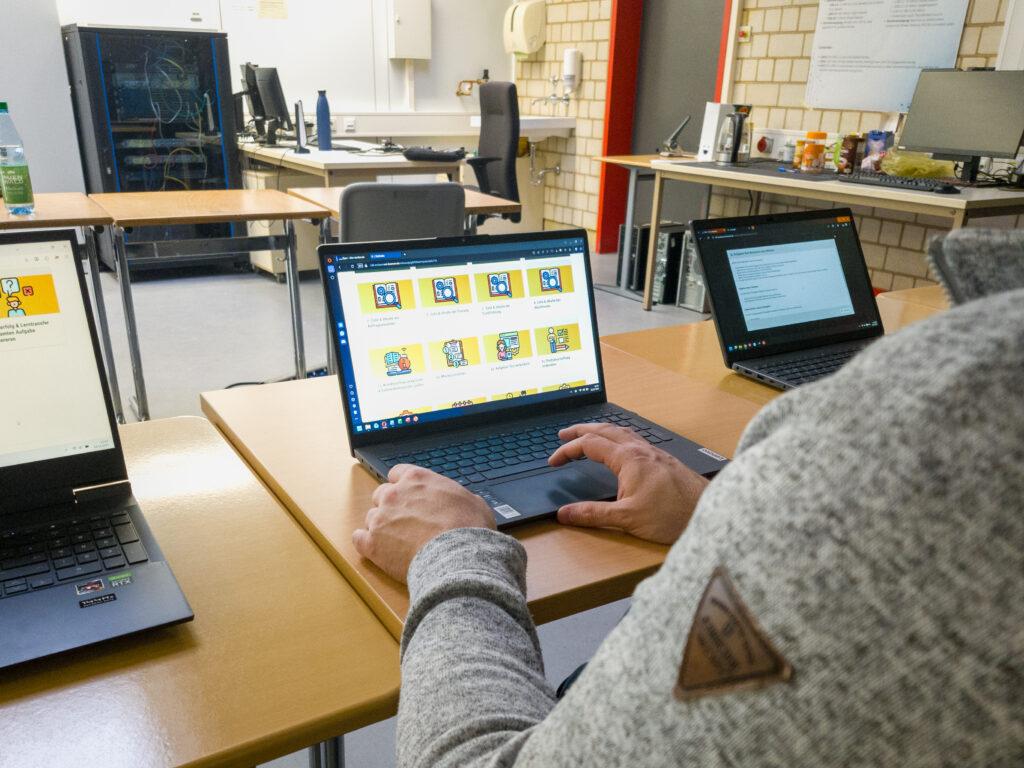
Latest developments in the ERASMUS+ project MULE
Our partners Dylan Loria, Paolo Lazzaroni and Stefano Remuzzi from ENGIM recently hosted a webinar to present the latest developments in the ERASMUS+ project MULE, with a particular focus on the construction of the Learning Working task (LWT). This marks a pivotal phase in the project, as the LWT will serve as a cornerstone for testing and validating the educational framework we’ve been building. The launch of the testing phase is especially significant—it will allow us to gather crucial feedback, refine our approach, and ensure the tool meets the diverse needs of learners and educators across Europe. The webinar fostered valuable dialogue among partners and reaffirmed our shared commitment to innovation and collaboration in vocational education.
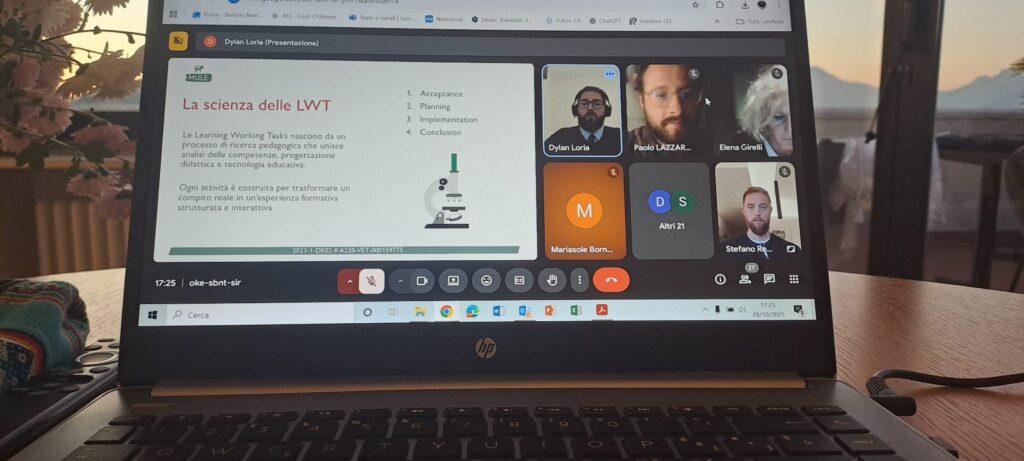
MULE at ECER 2025 in Belgrade
The Institute for Technology and Education (ITB) was represented at this year’s ECER 2025 conference in Belgrade with several contributions. Vivian Harberts and Christine Siemer had the opportunity to present their current research activities there and gave a presentation entitled: „Click, Learn, Succeed: Development of a Survey Instrument for Multimedia Learning Environments in Vocational Education and Training“.
The presentation introduced the beta version of a survey instrument that is being developed as part of the MULE project. The aim of the instrument is to analyse the multimedia learning environment developed for the field of applied computer science in terms of subjective learning success and anticipated learning transfer. International use is planned in four countries.
ECER 2025 provided an excellent opportunity to exchange ideas with international colleagues. Inspiring presentations, stimulating discussions and the lively academic atmosphere in Belgrade made participation a valuable experience – both for research and practice.
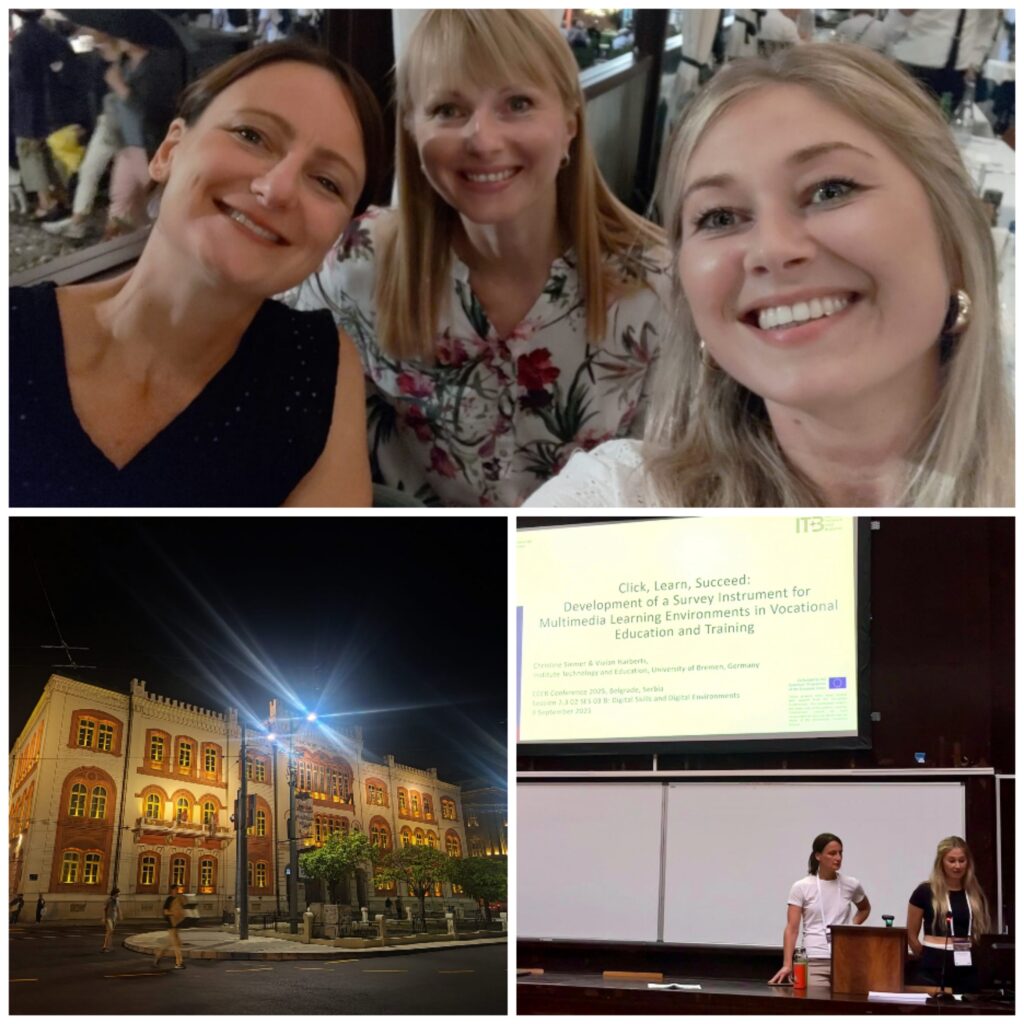
Development of learning and work tasks by our partners from Serbia
On May 22nd, 2025, Serbian MULE team members Željko Račić from Novi Sad School of Business, Đorđe Ćelić, and Vladimir Nikić gathered at #incubator.biz to discuss the progress of Learning and Work Tasks development. During a productive meeting, past results were analyzed, new goals were set, and all details regarding the upcoming transnational meeting in Bergamo, Italy, were agreed upon.
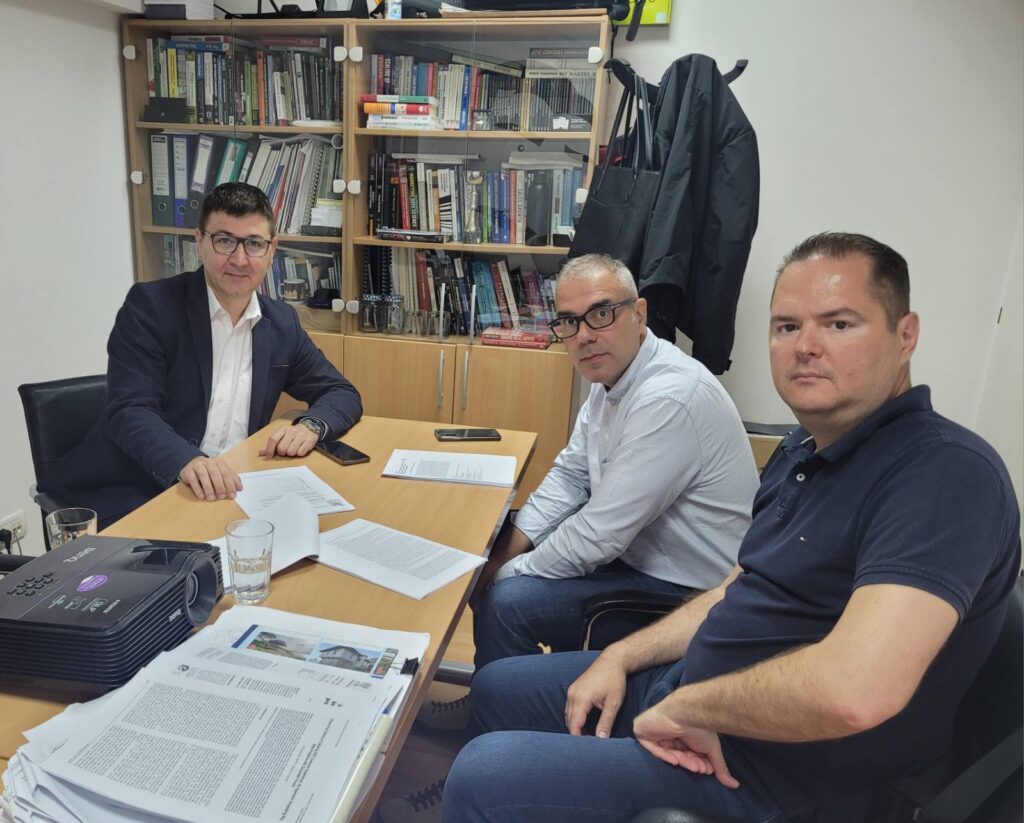
MULE on the 6th Crossing Boundaries Conference in Vocational Education and Training at the University of the Balearic Islands, Palma, Mallorca, Spain 21 to 23 May 2025
In addition to many exciting presentations Vivian Harberts (project coordinator) and Christine Siemer from the Institute of Technology and Education (Institut Technik und Bildung (ITB)) at the University of Bremen were able to present current research results from our Erasmus+ project MULE as part of Session 7.3 Workplace Training. The focus was on spheres of activities and also learning and work tasks for the field of applied informatics – with the aim of promoting professional and transverale skills and linking vocational schools and industry more closely. We discussed how digital learning spaces need to be designed in order to link vocational schools and industry more closely and which design features could be particularly effective in terms of learning success. The exchange with colleagues from international VET research was inspiring and valuable for our future work.
Many thanks to all participants for their interest, questions and open dialog! It was an inspiring session!
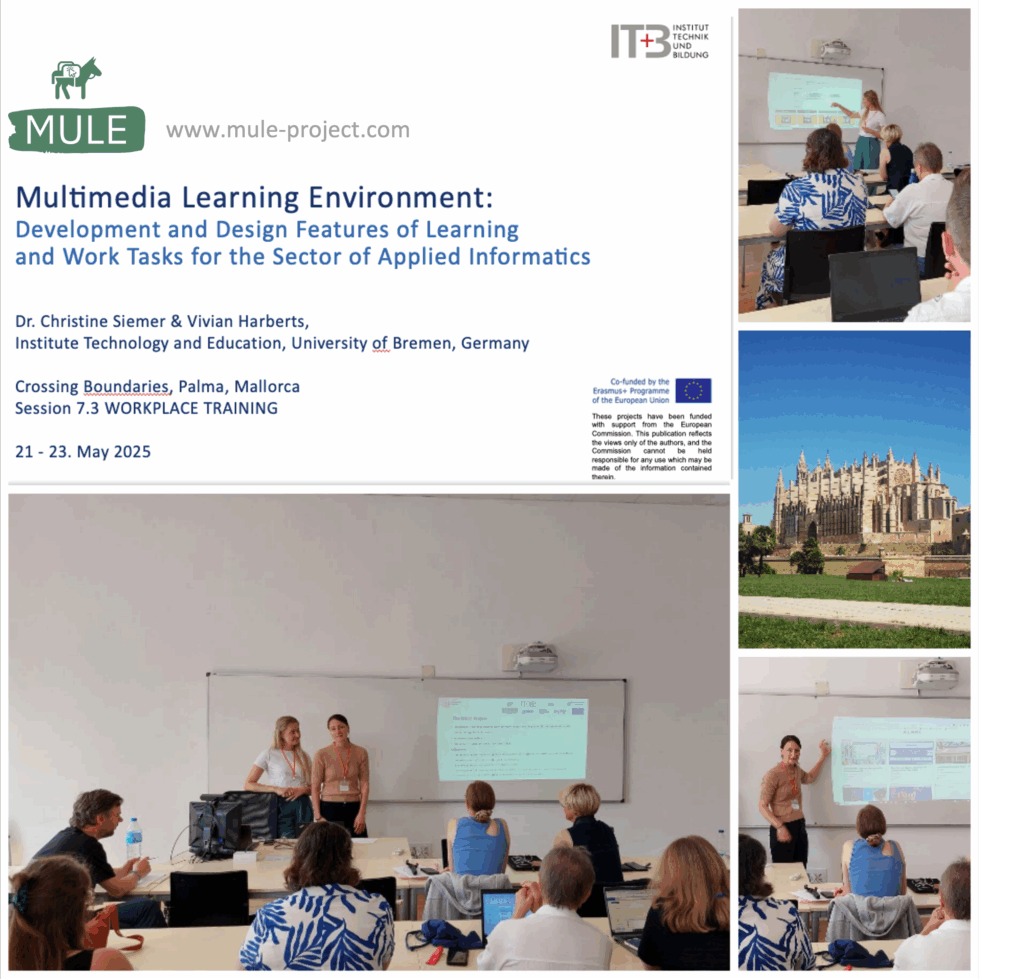
Shaping the future together – digital learning and work tasks for the applied informatic sector!
The ITB is currently working intensively on the development of learning and work tasks for the vocational sphere of activity (SoA-1) “Developing, programming and testing software applications and solutions” for students of applied informatics. Our aim is to design learning and work tasks that tackle professional and transversal skills. Special about learning and work tasks is that they break down real work processes and translate them into didactically meaningful subtasks – practical, action-oriented and as adaptable as possible to different educational contexts.
A little spoiler: Be are about to lounge our user-friendly web tool. Stay tuned!
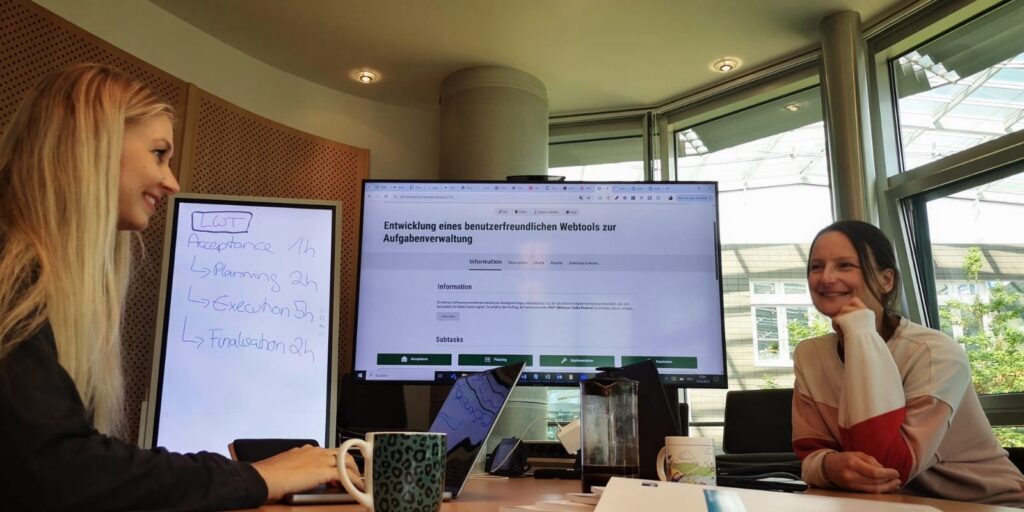
Insights into the MULE dissemination activities
On April 10, 2025, the project partners Iratxe Lejareeta and Ricardo Ferreria Figueroa from Maristak Durango participated in the Erasmus+ Project Dissemination Day in Bilbao. There are currently 81 active Erasmus+ projects in the Basque region, 35 of which were presented yesterday, including MULE.
Thank you for the interesting exchange!
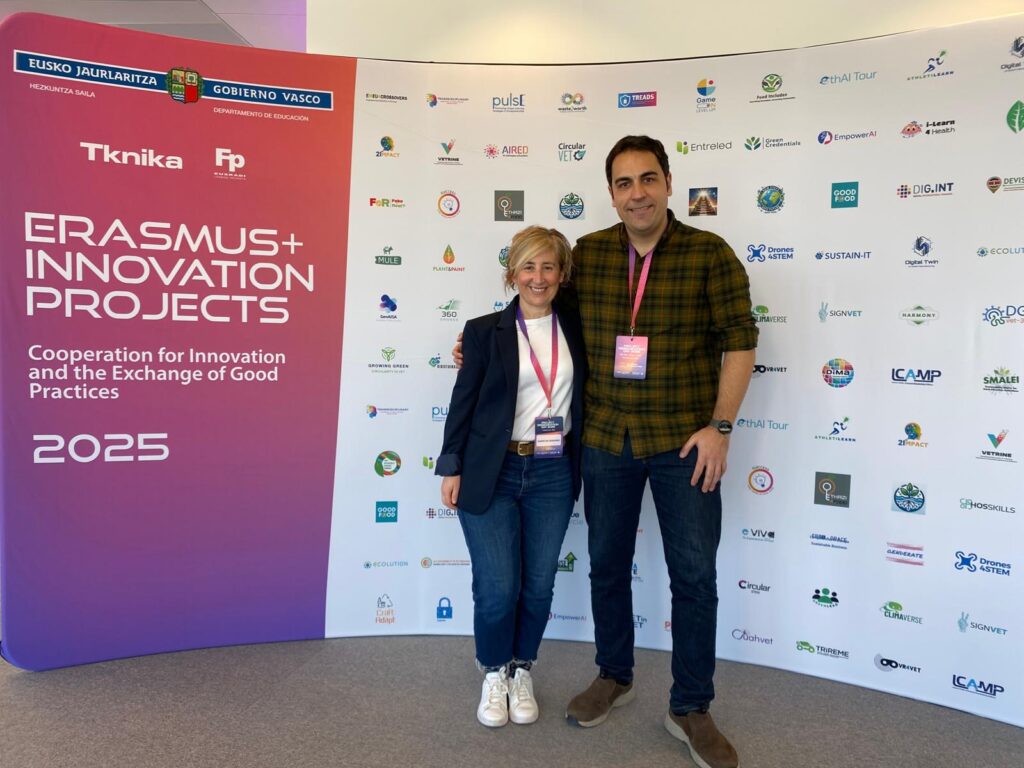
Work is progressing on the MULE project
The work and meetings in MULE continue and we look forward to the future steps of this research journey. Here, Professor Paolo Bertuletti and Paolo Lazzaroni are currently working on the work package WP4 “Piloting, Testing, (Re-Design) of Learning and Work Tasts in VET Schools” of the MULE project.
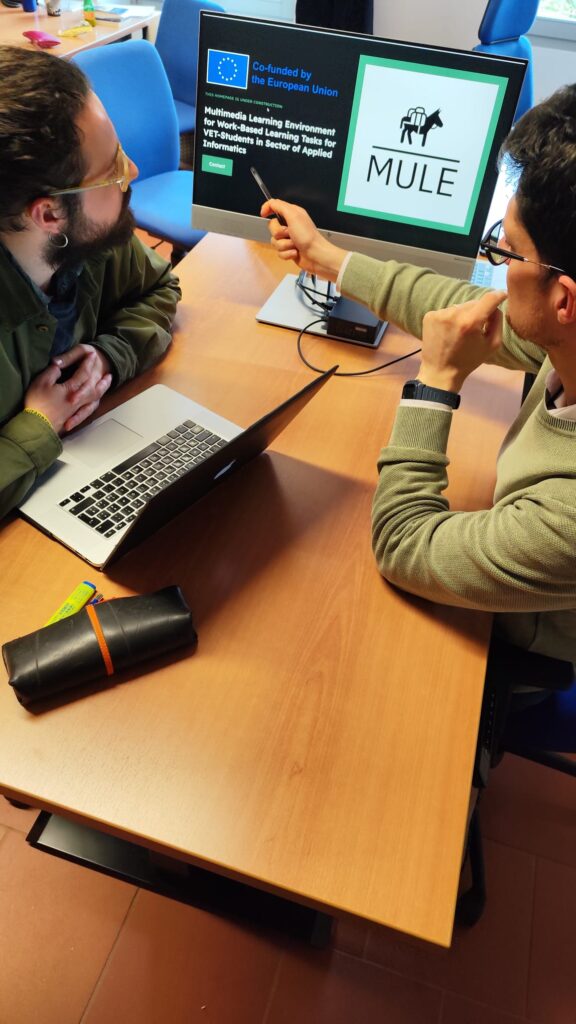
MULE at the Erasmus+ Days
On 17 October 2024, the MULE project partners took part in the Erasmus+ Days with a webnar on the topic „Practical requirements of the Applied Informatics sector – necessary skills and competences“.
After a short presentation of the aims and goals of the project, the main focus was on professional spheres of activity in the applied informatics sector from the partner perspectiv. From a German point of view, it was reported what professional spheres of activity are and why they are important fort he applied informatics sector. Specific features and challenges of the applied IT sector were reported from a Spanish perspective. The Serbian project partners provided insights into the challenges of selecting SoA, country comparison. Finally, the different opinions of IT experts on the practical needs of the IT sector were discussed from the perspective of different countries.
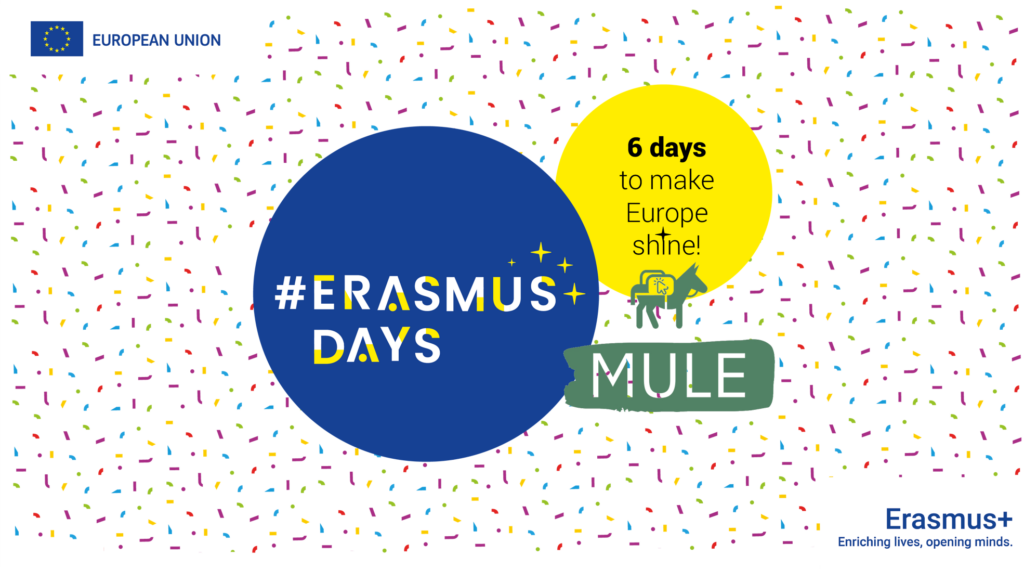
Transnational project meeting in Bilbao
From 25 to 27 September, the three-day MULE project meeting took place in beautiful Durango in Spain at the project partner Maristak.
At the project meeting, the project team discussed key topics, assessed the current status of the project and reviewed the quality of the work results to date. Particular attention was paid to the task manager and the development of learning and work tasks. Each partner got together as a team and developed an initial learning and work task. The three central fields of action are (1) developing, programming and testing software applications and solutions, (2) developing, installing, testing and administering cybersecurity and data protection and (3) creating, testing, developing and administering networks and network architectures. The team members presented their learning and working tasks in their respective areas and an open discussion took place on possible improvements.
In addition, the project partners were given a detailed tour of the Marisak Vocational School. To raise awareness of MULE, the project meeting was also used to make a video about MULE in 5 different languages. The focus was on what MULE means for your organisation/institution, what the aims of the project are, why the project is important for the future and what interest the individual countries have.
In addition, MULE will participate in the Erasmus+ Days on 17 October 2024 with a webniar. The time was used to jointly concretise the content of the webinar.
Finally, the goals for the next steps were set to ensure that the project stays on track. It was a productive meeting with a clear focus on transparency and collaboration.
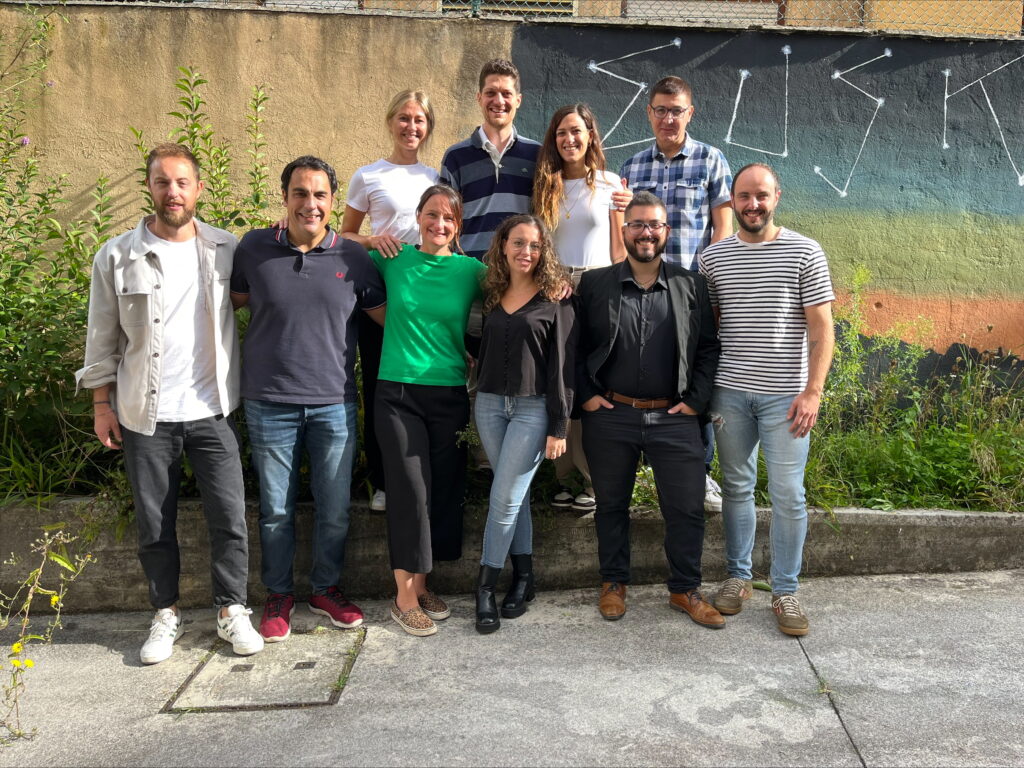
From left to right: Stefano Remzzui, Ricardo Ferreria, Christine Siemer, Vivian Harberts, Paolo Bertuletti, Arianna Taravella, Elisa Rebecca Citterio, Dylan Loria, Zeljko Racic & Aitor Calle
First interim results of MULE at the 9th Vocational Education and Training Research Conference (BBFK) in Innsbruck
On 3 July 2024, Dr Christine Siemer, Vivian Harberts and Hergen Auffarth from the Institute of Technology and Education at the University of Bremen published the first interim results from the Erasmus+ funded joint project „Multimedia Learning Environment for Work-Based Learning Tasks for VET Students in Sector of Applied Informatics (acronym: MULE)“ at the 9th Vocational Education and Training Research Conference (in German: Berufsbildungsforschungskonferenz (BBFK)) on the topic of „Vocational Education and Training in Times of Shortage – Rethinking Challenges“.
Shortage is a recurring social issue that affects jobs and skilled labour and limits people’s opportunities to participate. VET is often seen as a solution, although its effects are long-term and it is only one part of an overall societal response. At the same time, demographic change is leading to a shortage of both qualitative and quantitative skilled labour. The 9th Vocational Training Research Conference (BBFK) set itself the goal of rethinking potential and utilising the shortage in order to promote future-oriented lines of development. The thematic guidelines therefore included aspects such as artificial intelligence in the world of work and in vocational training practice, flexibilisation of vocational training, vocational orientation under changing conditions, transformations, e.g. towards new working models and changing actor constellations in competition.
The interim results of MULE were published in German as part of the poster session. The poster is available free of charge at the following link: https://www.bbfk.at/images/BBFK_2024/poster/Siemer-et-al-MULE.pdf
An English version of the poster can be found on our homepage in the download area.

MULE project kick-off in Bremen
At the kick-off meeting of the project „MULE – Multimedia Learning Environment for Work-Based Learning Tasks for VET-Students in the Sector of Applied Informatics“, the project partners from Germany, Italy, Serbia and Spain came together to discuss strategies and applied methods within the project. The project aims to improve vocational education in the field of applied computer science by capturing current industry trends through learning and work tasks. These are integrated into the curricula in order to contribute to the competency development of VET-students.
On the first day of the meeting, the topics of project management and dissemination were presented by the partners ITB and Novi Sad School of Business. On the second day, workshops were held on the concepts of professional spheres of activity and transversal competences, led by the University of Bergamo and ITB. The workshops were very interactive and stimulating, and it became clear that especially the identification of spheres of activities is a challenge for applied informatics, but one that is considered feasible by all partners. Unfortunately, the colleagues from the Basque Country were unable to attend the meeting in person due to the snow chaos in Munich, but they were connected via Zoom and were also able to make their valuable contributions to the meeting. The meeting was a successful start to the project and strengthened cooperation between the partners.
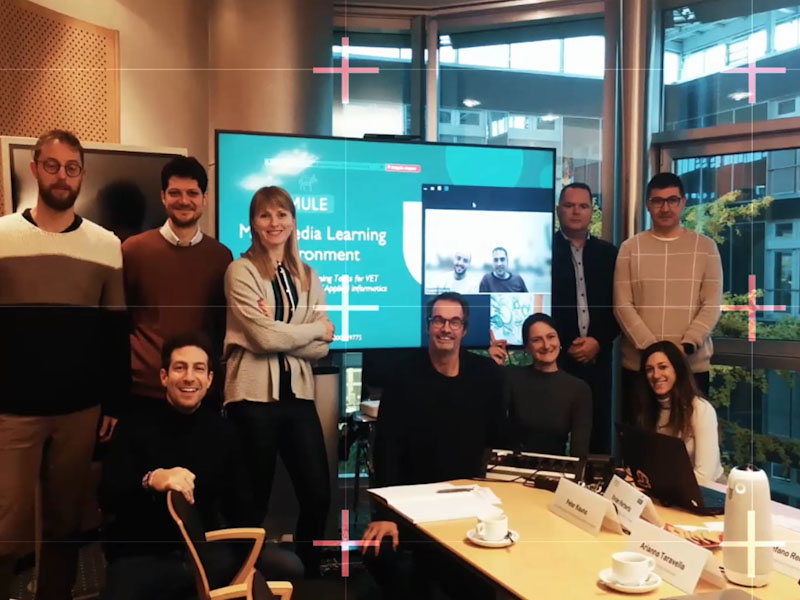
Documents

Download-Link: Quality Control and Monitoring Plan (PDF)

Download-Link: Spheres of Activities (SoA) – Synopsis (PDF)

Download-Link: Comparative SoA Report Final (PDF)

Download-Link: A Competence Model (PDF)

Download-Link: Sphere’s of Activity (PDF)
Content Kit: https://ck.kwst.uni-bremen.de/mule/

Download-Link: Scientific poster of MULE english version (PDF)
Partner
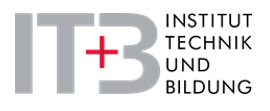
The Institute Technology and Education (ITB) of the University of Bremen (approx. 50 employees) has been working in Research on Vocational and Higher Education and Training since more than 35 years. It is one of the largest independent research facilities on this topic in the world. It focuses on the interaction of work, technology and education and on people’s influence on this triangle, aiming at a close interaction between reforming vocational education and training and innovation in work and technology. Thus holistic mindset always guides the research activities between theory and practice to develop, implement and/or prove applied teaching and learning (e.g. innovative concepts and methods and target groups) and its structures (e.g. curricula and learning venues). Therefore, the research is based not only on multidisciplinary (e.g. cooperation between educational researchers, professional scientists, engineers, psychologists, economics), but also on internationality. The institute conducts a wide set of research and development projects. Basically, research and development activities of the department „Work-Oriented Education Processes“ of the ITB are located in three areas: 1. vocational science studies (e.g. work-process analyses) to identify the skills, knowledge and competences of skilled workers; 2. planning, implementation and evaluation of work-process oriented, competencypromoting educational processes (learning and work tasks); 3. development and use of digital media and online tools (rapid e-learning). Special emphasis is placed on sustainable energy systems and energy efficiency. The occupational sciencebased concept of Kompetenzwerkstatt is the guiding principle for the department „Work-Oriented Education Processes“. Kompetenzwerkstatt has proven itself in various projects. It offers teachers and trainers in the industrialtechnical field professional-educational founded impulses and instruments for the organization of work process-oriented, softwaresupported learning and teaching. The design of learning environments is particularly important for work-oriented learning. Digital media play a key role in the research work of the department. The development of the digital tool „Task Manager“ within the Kompetenzwerkstatt is oriented towards the approach that users can easily create new content and adapt existing content even without special media technology know-how and without special technical equipment. The experience and developments of the institute are a valid basis for the development and testing of learning and work tasks within the project and represents a good way to link theory and practice in the vocational schools in the participating European partner countries and provide an open source and well evaluated online tool for the use in Vet-schools, companys and other.

Visoka poslovna škola strukovnih studija u Novom Sadu (VPS) is a public higher education institution for applied studies that educates professionals in business economics and computer science for over 60 years. The VPS offers Bachelor’s programmes in Finance and Banking, Trade and International Business, Tourism and Hospitality, Applied computer science, DLS studies in Finance and Banking, and a Master’s programme in International Business and Finance. Visoka poslovna škola strukovnih studija u Novom Sadu aims to educate professionals who will acquire the necessary knowledge that can be applied in the contemporary job market. The VPS builds an efficient interaction with its surroundings, follows market attractiveness and competitiveness principles, and continually improves working and studying conditions. The VPS’s primary goals aim to reach a level of quality that will enable the institution to become one of the region’s leading HEIs for applied studies in business economics and computer science. Visoka poslovna škola strukovnih studija u Novom Sadu (approx. 85 employees) is focused on organising internships and apprenticeships for students at companies and institutions with which it has continued collaboration. Every year, the number of collaborating partners is rising, and a wide range of partners offers students the possibility to get practical knowledge in different occupational fields. The VPS focuses on the evaluation of the individuality of students through the Centre for Career Development, and to provide a better connection with the job market, annually organises an Employment and professional development fair. By continuously monitoring the demands of the labour market, study programmes are improved between accreditation cycles, and the content of the market-oriented subjects is innovated. The VPS develops and conducts certified courses for non-formal education in accounting, IT literacy, foreign languages, EU topics, etc., for its students and all those interested in continuing professional development. With the accredited course for CPD development of teachers at the secondary and upper secondary levels, the VPS also offers the possibility for teachers to get credits for teaching licences. The research and scientific activities of VPS are realised through the organisation of the Biennial International Scientific and Expert Conference “Economic Development and Competitiveness of European Countries” and the International Journal of Economic Practice and Policy published since 2004.
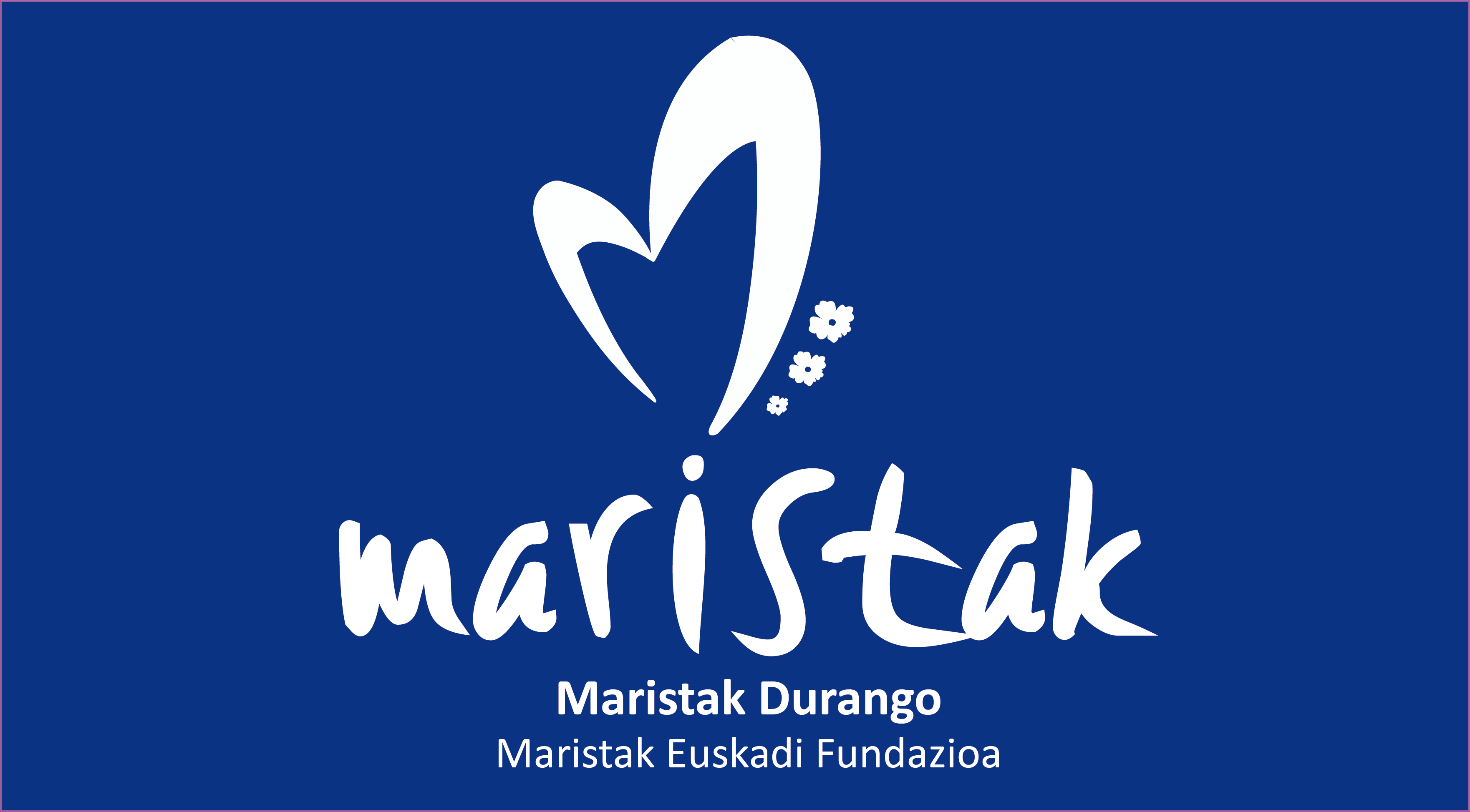
Maristak Durango is an Education and Training Center located in the Basque Country. University Prep Education (baccalaureate degree), Vocational Training courses (levels 1 to 3 according to EQF standards), Continuing Education courses, and occupational training are offered. Some of the areas of training covered by Maristak Durango are Computer Sciences, Robotics or electromechanical and Mechanical Design Fabrication. Since 2003 the center is working on adapting educational methods to the new current needs. All vocational studies are carried out with a PBL methodology. Maristak has collected several awards, such as the National Award to the Best Training Practices (2003) or the Investors in People certification, granted by the British IQC (2010), among others. Moreover, Maristak Durango actively cooperates in the dissemination of quality in training and promotes sustainable development goals. Maristak Durango also cooperates with companies, public administration, and the Basque Employment Service (LANBIDE) in the Basque System of Professional Qualifications. The experience of Maristak leading and collaborating in projects concerning to VET is very deep: In 2012, Maristak led a KA2 project VET COACH project 2012-1-ES1-LEO05-48196, which developed a coaching tool to support VET students and teachers in the self-learning process of key competencies (teamwork, creative thinking, learn to learn) from a 360-assessment perspective. Mobile-Tech 2015-1-ES01-KA202-015903, which promoted the use of mobile devices in VET centers for teaching and learning purposes. Maristak is currently leading a KA2 project named INVET 2020-1-ES01-KA202-082301. In 2016, MULTI-ESKOLA: Multilingual strategies and tools for teachers to promote an inclusive education 2016-1-ES01-KA201-025323, aimed at providing teachers, trainers, and stakeholders with resources to encourage and favor the integration of immigrant students, in a multilingual educational model. In 2018, Maristak collaborated in CyVETsecurity 2018-1-ES01-KA202-050465. Vocational education resources to develop cybersecurity skills, where different initiatives carried out to build a cybersecurity capacity in Europe, at national and international level, and feeds from the momentum cybersecurity is having in the European agenda by addressing these detected needs. In 2020, INVET 2020-1-ES01-KA202-082301 project was develop with aim of developing inclusion models and resources for VET students at risk of dropping out. In 2020 as well, Maristak collaborated in DualECOsystems – EU Alliances for ICT 2020-1-IT01-KA202-008471, which aimed to share and confront on samples of best practices adopted by each partner, to improve the functioning of the local “ecosystems” and similar EU approaches. With this project background in VET training, Maristak is a partner that’s suits perfectly in MULE project due to its experience combining innovation in the learning and pedagogical processes, as well as an endless effort providing the skills demanded in the industry to adapt and respond to their need with agility and proficient quality.

Università degli Studi di Bergamo (UniBg) is a State University with more than 23,000 students enrolled on various degree programs: 15 undergraduate degrees, 25 graduate degrees and 6 PhD programs. The increasing number of students and a staff provides a dynamic scientific and teaching environment open to innovations. The 8 Departments and the 7 Research and Service Centres enjoy very close connections with the territory, its institutions, and its cultural and economic environment. They are grouped in three campuses located in three different areas: Campus of Economics and Law (Bergamo), Campus of Humanities (Upper Bergamo) and Campus of Engineering (Dalmine). The strengths of UniBg are the wide range of courses on offer (also through distance learning projects), excellent use of the numerous laboratories available, ambitious research centres, and the fact that it operates in one of the most dynamic areas in Italy, both from a cultural and an economic point of view. Among the excellent facilities available at UniBg there are a wellestablished Language Centre, Computer Labs, and Library services; the diversified and increasing number of international exchanges enable undergraduate, post-graduate and doctoral students, professors and researchers to operate in the framework of different programmes and international agreements; finally, a well-organised career service is offered by the Student Placement Office. UNIBG has an established expertise in participating and managing EU funded projects and the well experienced Research and Technology Transfer Office staff of UNIBG is used to support, in terms of project management, the research project, safeguarding the financial management at the central level. For several years now, the University of Bergamo has been devoting part of its teaching and research activities to the area of the labour market. The theme of promoting the development of skills and personal training is particularly relevant and goes well alongside the ambition to design training models that can be implemented and applied in the VET. The department that is most committed to this and wants to take an active part in this project is the Department of Human and Social Sciences. Within the latter, the working group led by Professor Andrea Potestio and Professor Paolo Bertuletti will be directly involved.
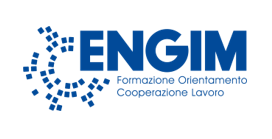
ENGIM is a VET organization in the form of a foundation working at national and international level. ENGIM organises training and guidance activities in Italy and abroad for young people and workers, to develop their vocational skills and their personal and social advancement. ENGIM operates in 8 Italian regions, with 27 centres and with approx. 10.000 students, and 1000 employees (800 trainers). The target groups of the training activities are: young people, unemployed and employed adults with and without qualifications, migrants, disabled and people with special needs. Our fields of training are diverse but all of them involve a strong component of work-based learning and practical experience. Across the regions, one of the main training field in which ENGIM is engaged is ICT; ENGIM cooperates at its local levels with several companies and stakeholders in the form of “local skills ecosystem”. Other activities involve networks for Apprenticeship, career guidance for the labour market and labour market insertion, social innovation and integration (food truck, SANGA bar run by students with special needs…). ENGIM is involved in European cooperation, organizing mobilities for its students and staff and in projects developing partnerships and innovation. ENGIM is also an NGO (non-governmental organization) promoting and managing international development projects in Sierra Leone, Guinea Bissau, Albania, Argentina, Brazil, Chile, Ecuador, Mexico. At European level ENGIM is participating to several Erasmus+ projects (especially KA2) which are widening its expriences and contacts as well as raising the competence of the staff and the trainees. ENGIM is part of the EFVET network and members of its working groups especially in the field of tourism and green competences.
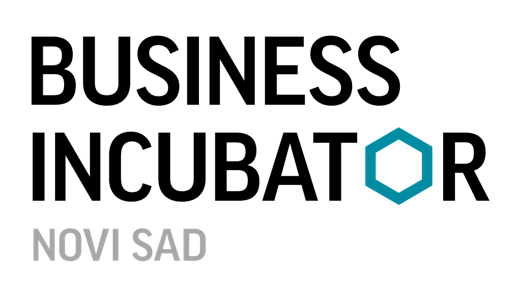
Serbia (National Agency for Regional Development, Ministry of Education, Science and Technological Development of the Republic of Serbia), as well as Erasmus projects. Business Incubator is a partner in the project “Enterprise Europe Network” (member of Serbian consortium). Through the project, the Business incubator supports start-ups that need to internationalise their own business and discover new partners abroad. In the previous 12 years, Business Incubator Novi Sad has supported more than 103 start-ups. The Incubator has become one of the key entrepreneurship hotspots in the city by organising meet-ups, start-up weekends, hackathons, ideathons and other types of events for the start-up community. The key strengths of BINS are education and mentoring programs tailored made for high-tech start-ups. The Incubator provides consultancy, training and mentoring in areas of Business model development, Value proposition design, Digital marketing, Growth hacking, Finance for start-ups, HR for start-ups, Pitching to investors, Branding for start-ups and Go-to-market strategies. The incubator supports established start-ups and teams in the ideation phases. The mission of the Incubator is to help businesses through three primary mechanisms: buffering, bridging, and curating. Through buffering, young firms are protected from competition and external threats through shared essential business services that can help offset costs. Bridging connects firms to outside resources, knowledge and social capital, often including networking with mentors and investors with industry expertise. When firms need help sifting through many available resources while curating connects them to the most appropriate ones. Several programs have been developed, and among the most successful is nStarter. nStarter is intended for start-ups and teams of would-be entrepreneurs with well-defined business ideas. The program is designed for teams with excellent technology knowledge/insight and a vague business idea. The program helps passionate, young entrepreneurs take their ideas to the next level, while having a lasting impact on their educational and professional development. Meetups, organized by nStarter, help Novi Sad’s startup ecosystem become more vibrant and communicative, allowing for idea and experience transfer between experienced foreign and domestic experts and local start-up community. BINS, as representative of stakeholders in VET, employer and representative of digital and creative industries, will participate in all WPs, contributing actively to the state-of-the-art analysis of the VET system, development of working paths, transversal e-skills for VET learners, piloting, the establishment of regional ecosystem, and project dissemination. Since 2019. the Incubator has been a local hub for EIT RawMaterials, partnering in the EIT Jumpstarter project. Since 2022. the Incubator has been supporting the Founder institute Serbia pre-accelerator.
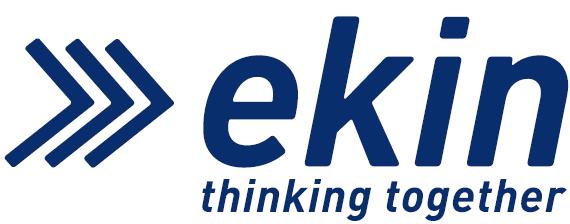
In 1963 we created the company ekin, and from the trust in people we have managed to be a leading company in the manufacture of machines and broaching and laminating tools, both grooves and serrations and threads of high precision. We collaborate with the most demanding companies at a technological level. In this project called ekin there is a generational coexistence that results in the perfect union between youth and experience. Despite being a staff with a young age average, it is normal for jobs to be maintained for a lifetime, which means a high degree of commitment to those who come behind. We are a large team in number, but very cohesive, which governs the principle of solidarity and commitment to the society of which we are part, with the environment in which we develop our activity and the future of all of them. The wealth that we generate reverts to the well-being of the people around us. With a total of four own centers in three continents (Ekin Amorebieta, Ekin Lemoa -Bizkaia-, Ekin India -Gurgaon, Haryanaand Ekin México -Querétaro-) adds a total staff of 360 workers. Our commitment to R + D + i and the adaptation of our products to the needs of each client have made us a benchmark in Europe and worldwide. Thanks to our extraordinary engineering department they imagine, design and create and collaborations with leading European technology centers, we can offer companies leading and personalized products. Thanks to our high level of competitiveness, in 1994 we became one of the first Basque companies to obtain the ISO 9000 certificate. ekin has also been awarded quality certificates by the most demanding customers on the market: the leading automotive manufacturers. Machines are the products which best represent ekin’s knowhow, and we manufacture all the machines necessary for producing each part and tool. We are world leaders in high-precision machines and tools for broaching and cold rolling. Moreover, we are a key player in this industry in Europe, with full in-house design, development and assembly capacity.
Team
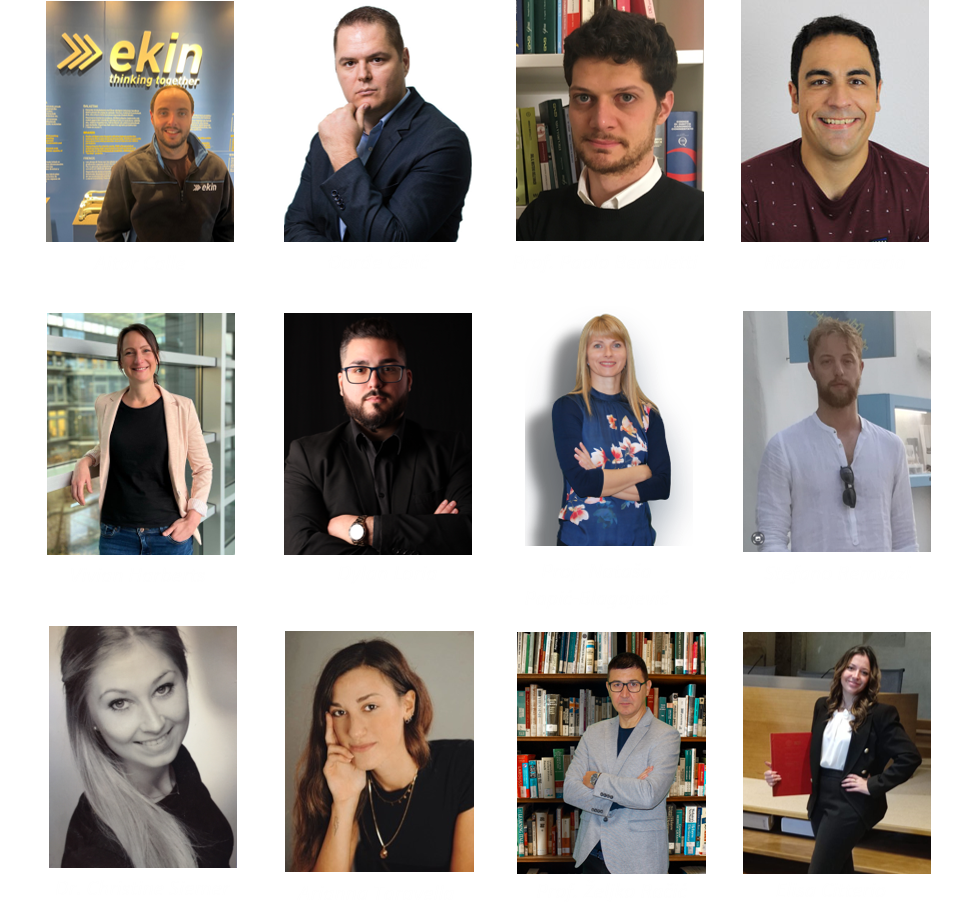
Germany
Vivian Harberts
Head of the project consortium
University of Bremen, Institute Technology and Education
Phone: +49 (0) 421 / 218 – 66 3 11
Mail: harberts@uni-bremen.de
Dr. Christine Siemer
University of Bremen, Institute Technology and Education
Phone: +49 (0) 421 / 218 – 66 3 34
Mail: chsiemer@uni-bremen.de
Italy
Prof. Paolo Bertuletti
Department of Humanities and Social Sciences, University of Bergamo
Phone: +39 0352052912
Mail: paolo.bertuletti@unibg.it
Elisa Rebecca Citterio
Fondazione ENGIM Lombardia ETS
Phone: +3665238341
Mail: elisa.citterio@engimlombardia.org
Dylan Loria
Fondazione ENGIM Lombardia
Phone: +49 1709372407
Mail: dylan.loria@cpi.engimlombardia.org
Stefano Remuzzi
Fondazione ENGIM Lombardia ETS
Coordinatore Sede Regionale
Phone: +39 3346541205
Mail: stefano.remuzzi@engimlombardia.org
Arianna Taravella
Università degli Studi di Bergamo
Mail: arianna.taravella@unibg.it
Paolo Lazzaroni
Università degli Studi di Bergamo
Mail: paolo.lazzaroni1@unibg.it
Giuseppe Alberghino
Università degli Studi di Bergamo
Mail: giuseppe.alberghina@guest.unibg.it
Spain
Aitor Calle
Ekin S.Coop.
Phone: +34 629620768
Mail: acalle@ekin.es
Ricardo Ferreria
Maristak
Phone: +946810058
Mail: rferreria@maristak.com
Serbien
Prof. Nataša Papić-Blagojević
Novi Sad School of Business
Mail: npapic.blagojevic@gmail.com
Prof. Željko Račić
Novi Sad School of Business
Mail: raciczeljko@gmail.com
Prof. Đorđe Ćelić
Business Incubator Novi Sad
Mail: celic@inkubator.biz
Contact
Project coordination
Vivian Harberts
Institute Technology and Education (ITB), University of Bremen, Germany
Am Fallturm 1
28359 Bremen, Germany
Mail: harberts@uni-bremen.de
